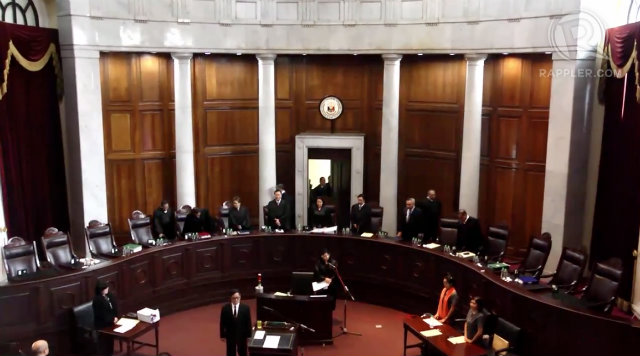Real action v. Personal action
It is basic that the venue of an action depends on whether it is a real or a personal action. The determinants of whether an action is of a real or a personal nature have been fixed by the Rules of Court and relevant jurisprudence. According to Section 1, Rule 4 of the Rules of Court, a real action is one that affects title to or possession of real property, or an interest therein. An action for partition or condemnation of, or foreclosure of mortgage on, real property is a real action.[1] The real action is to be commenced and tried in the proper court having jurisdiction over the area wherein the real property involved, or a portion thereof, is situated, which explains why the action is also referred to as a local action. In contrast, the Rules of Court declares all other actions as personal actions.[2] Such actions may include those brought for the recovery of personal property, or for the enforcement of some contract or recovery of damages for its breach, or for the recovery of damages for the commission of an injury to the person or property.[3] The venue of a personal action is the place where the plaintiff or any of the principal plaintiffs resides, or where the defendant or any of the principal defendants resides, or in the case of a non-resident defendant where he may be found, at the election of the plaintiff,[4] for which reason the action is considered a transitory one.
According to Section 1, Rule 4 of the Rules of Court, a real action is one that affects title to or possession of real property, or an interest therein. An action for partition or condemnation of, or foreclosure of mortgage on, real property is a real action.[1] The real action is to be commenced and tried in the proper court having jurisdiction over the area wherein the real property involved, or a portion thereof, is situated, which explains why the action is also referred to as a local action. In contrast, the Rules of Court declares all other actions as personal actions.[2] Such actions may include those brought for the recovery of personal property, or for the enforcement of some contract or recovery of damages for its breach, or for the recovery of damages for the commission of an injury to the person or property.[3] The venue of a personal action is the place where the plaintiff or any of the principal plaintiffs resides, or where the defendant or any of the principal defendants resides, or in the case of a non-resident defendant where he may be found, at the election of the plaintiff,[4] for which reason the action is considered a transitory one.
 According to Section 1, Rule 4 of the Rules of Court, a real action is one that affects title to or possession of real property, or an interest therein. An action for partition or condemnation of, or foreclosure of mortgage on, real property is a real action.[1] The real action is to be commenced and tried in the proper court having jurisdiction over the area wherein the real property involved, or a portion thereof, is situated, which explains why the action is also referred to as a local action. In contrast, the Rules of Court declares all other actions as personal actions.[2] Such actions may include those brought for the recovery of personal property, or for the enforcement of some contract or recovery of damages for its breach, or for the recovery of damages for the commission of an injury to the person or property.[3] The venue of a personal action is the place where the plaintiff or any of the principal plaintiffs resides, or where the defendant or any of the principal defendants resides, or in the case of a non-resident defendant where he may be found, at the election of the plaintiff,[4] for which reason the action is considered a transitory one.
According to Section 1, Rule 4 of the Rules of Court, a real action is one that affects title to or possession of real property, or an interest therein. An action for partition or condemnation of, or foreclosure of mortgage on, real property is a real action.[1] The real action is to be commenced and tried in the proper court having jurisdiction over the area wherein the real property involved, or a portion thereof, is situated, which explains why the action is also referred to as a local action. In contrast, the Rules of Court declares all other actions as personal actions.[2] Such actions may include those brought for the recovery of personal property, or for the enforcement of some contract or recovery of damages for its breach, or for the recovery of damages for the commission of an injury to the person or property.[3] The venue of a personal action is the place where the plaintiff or any of the principal plaintiffs resides, or where the defendant or any of the principal defendants resides, or in the case of a non-resident defendant where he may be found, at the election of the plaintiff,[4] for which reason the action is considered a transitory one.[1] Chua v. Total Office Products and Services (Topros), Inc., G.R. No. 152808, September 30, 2005.
[2] Section 2, Rule 4 of the Rules of Court.
[3] Hernandez v. Development Bank of the Phil., No. L-31095, June 18, 1976.
[4] Section 2, Rule 4 of the Rules of Court; see also Orbeta v. Orbeta, G.R. No. 166837, November 27, 2006.
